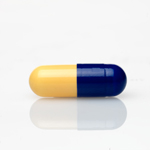 A new study shows a big new arena for vitamin D in terms of health. The nutrient that keeps coming up in the news has sprung forth in this area: preventing lung diseases. And not just any lung disease; “autoimmune” diseases that have no cure and are quite serious.
A new study shows a big new arena for vitamin D in terms of health. The nutrient that keeps coming up in the news has sprung forth in this area: preventing lung diseases. And not just any lung disease; “autoimmune” diseases that have no cure and are quite serious.
So vitamin D might just protect your lungs. The new findings are reported in the current issue of “Chest.”
Researchers at the University of Cincinnati say that a vitamin D deficiency — not having enough of the nutrient in your body — is known to affect the development of some autoimmune diseases, such as lupus and type 1 diabetes. But what they wanted was to see if a lack of sufficient vitamin D would also be seen in patients with interstitial lung disease (ILD), and if vitamin D was linked with lung function.
ILD is a chronic autoimmune disease. An autoimmune disease occurs when the body produces abnormal cells that turn on the body and attack major organs and tissues. Connective tissue diseases include lupus, scleroderma and rheumatoid arthritis. ILD is actually a group of diseases that mainly affect lung tissues rather than the airways (like, for instance, asthma does). ILD causes scarring of the lungs, is often difficult to diagnosis and treat, and can be fatal.
Researchers looked at 118 patients — 67 with connective tissue disease-related ILD and 51 with other causes of lung fibrosis — for blood levels of vitamin D. Overall, those with connective tissue disease-related ILD were more likely to have vitamin D deficiency (52%) and vitamin D insufficiency (79%) than those with other forms of ILD.
In this group, lower levels of vitamin D were strongly associated with reduced lung function.
What it means is that there is an extensive vitamin D deficiency in patients with ILD. This then means the nutrient may play a role in keeping lung function from growing worse. If future studies show that vitamin D supplements are effective, it might lead to a great new treatment for ILD.
It is yet another major reason to make sure you get enough vitamin D every day. On average, older adults should get between 1,000 and 2,000 IU a day.
Also Read:
